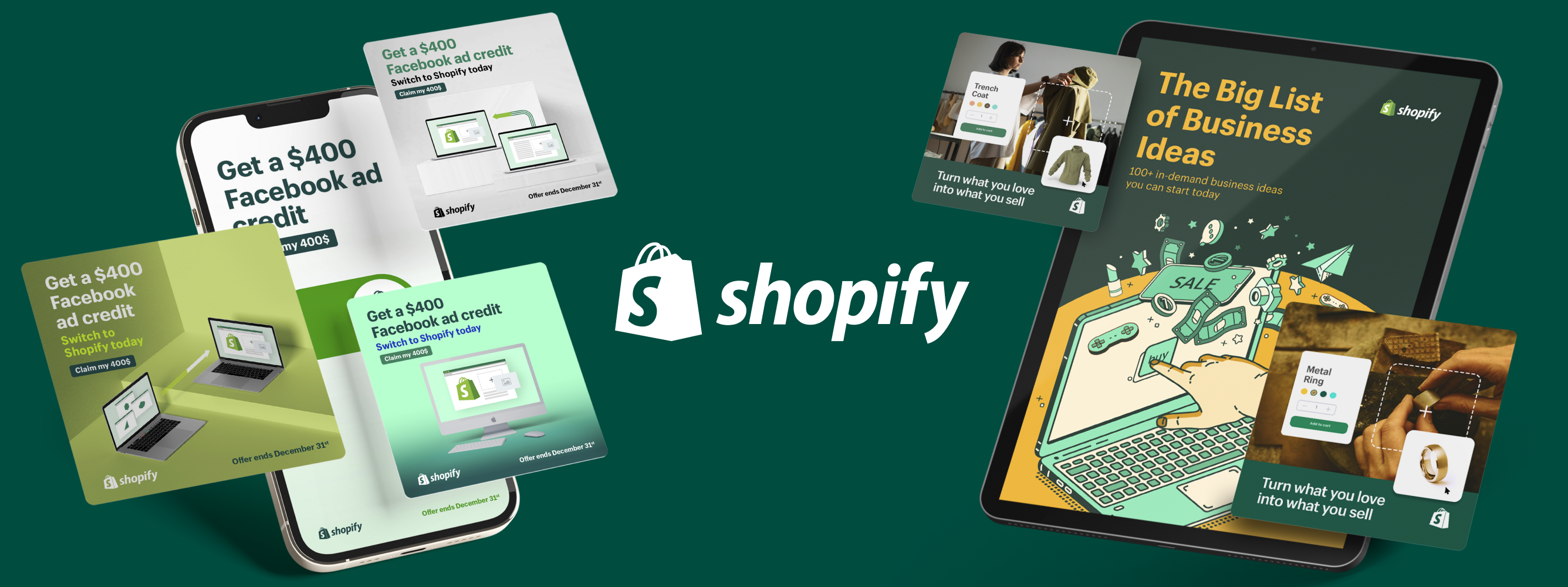Betting on Yourself: How to Lead Like Chris Do & Adam Morgan

We’re still reeling from our biggest event this year. The Momentum Summit was a roaring success, and our guests gave us enough insights to keep the content rolling for months. While you can check out every summit session here, there was a little extra magic around our keynote: Founder & CEO of The Futur Chris Do and Executive Creative Director at Adobe Adam Morgan caught audiences off-guard right out the gates with Betting on Yourself First: The Not-so-Secret Path to Leadership.
While many enterprise summits can leave you wondering why you’re here (quietly checking your socials, anyone?), Chris and Adam’s keynote was not one of them. Rather than digging their heels into practical marketing and design tips, they challenged the audience to jumpstart business growth by growing personally and professionally. It was existential, and what all 3,000+ of us attendees needed to hear.
Chris and Adam ran with our summit’s theme of smart bets—taking calculated risks that ensure scale through crises—and explained why becoming a more effective business leader, motivated collaborator and better person, in general, were some of the smartest bets you could make in the coming year.
So, without further ado, here are six smart bets that you can use on your own not-so-secret path to leadership.
Adam’s #1 Bet: Educate Yourself
The first and most important thing you need to maintain as your mantra is this:
“Control the things you can and ignore the things you can’t”
There is no point fretting and struggling against outside forces. Instead, your best tactic is to see what you can adjust and how you can adapt in order to better face these challenges (and opportunities).
In other words, the best thing you can control is your own learning path.
“If you want to lead, you have to read”
For Adam, this was the biggest differentiator in his personal and professional life. It allowed him to use the experience and insights of others to propel his own career forward. Instead of just relying on his own mistakes to learn from, educating himself allowed Adam to see the pitfalls that others had stumbled into. It also gave him an advantage in knowing what had been done before, especially in design, so that he didn’t repeat trends or designs that had already been played out.
Adam wasn’t reluctant about what modes of education he needed, either. Books, podcasts, masterclasses—he even went back to school to get his Master’s degree in marketing strategy. You need to be voracious in your learning process, and you need to be consistent.
In business, you also need to learn the language of the industry you’re focused on. By understanding the language of marketing and advertising, Adam was able to speak to clients and peers in a way that better explained his ideas and allowed them to collectively come to a better end result.
In all, to be a leader, you have to be a sought-after expert, and you can only become that through education and experience. Just as importantly, when you reach the point of being a leader, you need to maintain that momentum. As Adam puts it:
“If you don’t keep up, you fall behind”
Also, it’s not about the hustle or the grind, or rushing to be at the same pace as your peers. Sometimes, overworking can be your enemy, leaving you in the weeds as others have time for reflection and education. If you want to be an expert, if you want to get invited to the table - read, read, read - anything and everything. That’s how you’re going to grow.
Key Tip: Education is the clearest and smartest way to success.
Chris’ #1 Bet: HiFi ROI
The more you invest in your expertise, the more valuable your experience becomes
HiFi ROI, or High-Fidelity Return on Investment is the practice of focusing on your own development and expertise to increase your value in the market.
A few years ago, Chris got a word of advice from his former business partner, Jose Caballer, which changed the way he approached business.
“Once you’ve covered your living expenses, spend as much as you can on your personal development.”
Like most of us, Chris joined the market as an unskilled laborer, earning close to nothing and not being able to really explore a career path he could enjoy. Then, after getting a freelance job inking illustrations, Chris was all of a sudden earning six times as much as he had previously. It was in this moment that he realized specialization is the key to success.
Just like Adam, Chris began a relentless pursuit of learning as much as he possibly could about every aspect of the industry. He went to community college, got his degree, and was now earning even more than before.
But then, the real seismic shift in Chris’ career came. Chris was having lunch with a friend who was experiencing the most explosive growth in their professional life. Chris’ friend explained that having a business coach had given him the insight and confidence to be able to push his career in a direction he had never thought possible.
Chris decided to do the same and hire a business coach that could help him realize his full potential. Enter: Keir McClaren
For 13 years, Keir and Chris met every week, going through Chris’ personal and professional development and how he could improve his career.
Over time, Keir coached him to a position where Chris’ insight and advice were of a highly sought-after level. Now, Chris could value himself at $1,500 an hour, and eventually at $30,000 an hour, all from taking a HiFi ROI approach.
Key Tip: The more you invest in yourself, the more others will invest in you
Adam’s #2 Bet: Build Partnerships
“The idea that you can make it alone never works out. Never.”
The best thing you can do for your professional development (after educating yourself) is to build solid relationships based on trust and respect.
Contrary to popular belief, many promotions in larger companies are not based on skill, they’re based on relationships. This isn’t about office politics or one-up-manship, it’s actually about interpersonal and communication skills. As a leader, it is vitally important that you are able to communicate your ideas in a clear and manageable way. Without this ability to develop communication skills, your career is dead in the water.
- How does this person collaborate with others?
- Are they a quality leader?
- Can they provide the insights we need to improve this project?
These are the questions your boss is going to ask others when considering you for a promotion. If you can work with others in an effective way, you’re on the right track to success.
Secondly, don’t just think that because you have a meeting with someone twice a week that you have a valued relationship. Professional relationships are built on trust, value added, and proof of quality work. If you can show yourself as a high-value individual that can provide the insight that people need in an effective and clear manner, you’re a shoo-in for promotion.
The best indicator that you’re on the right track is when you’re being invited to high-value meetings or workshops without having to ask. This means your insight is valued and people see you as an integral part of the solution.
Key Tip: Don’t just educate yourself on ideas, educate yourself on how to communicate your ideas with others.
Chris’ #2 Bet: Seek Out Uncomfortable Partnerships
Just like Adam explained, Chris knows from experience that you need partnerships to be able to succeed in business.
For Chris, however, the most important aspect is to seek out uncomfortable partnerships. If you set up a business or keep working with people of a like mind to you, you won’t learn anything. However, if you seek out those with a completely different worldview from you, you’ll see exactly that: an entirely new world.
Back in 2014, Chris was approached by his old friend Jose Caballer. Jose wanted to set up an online education business, and he wanted Chris to join him on this adventure. They named it the Futur.
Chris and Jose could not be more different from each other. Chris is a textbook introvert, getting his work done in isolation and with very little outside interaction. Jose is the opposite. Entirely comfortable in a room full of strangers, Jose lives life to meet new people and to create new friendships.
At first, Chris was reluctant. He didn’t know how he could collaborate with someone who was so different from him. In the end, however, like in a Hollywood movie, their opposites made the sum of the whole, and their business thrived.
After a slow beginning, their business grew rapidly, increasing profits by 300% year on year. In 2021, the Futur made $4.5 million in revenue, all thanks to Chris and Jose’s exceptional (and uncomfortable) partnership.
Key Tip: Collaborate with people completely different from you. Put yourself in uncomfortable situations. It’s the only way to grow.
Adam’s #3 Bet: Take Strategic Action
“There’s no such thing as standing still in business, only going forward and falling behind”
So, you’ve followed Adam’s first two tips: you have your deep industry knowledge and a wide network of connections. Now what?
It’s easy to make snap decisions and end up going in circles. Instead, you need to focus on this one important maxim: think strategically.
If you can set up a system for yourself with clear results, outlines, and expectations, you can set yourself up not just for success, but for the unavoidable result of success.
Adam gives a perfect example of this.
For the entirety of his professional career, Adam has always wanted to write a book. Every year, he would set himself the goal of writing a book and every year he would limp into December with barely a chapter written.
He even set up (quite extreme) motivators for himself.
Along with taking classes and joining groups, he walked into the office of his colleague, handed him $1,000 dollars, and said “If I don’t have this done by the end of the year that money is no longer mine.” It’s safe to say that he never saw that $1,000 again.
He even set up consequences for himself like having to join a male tap dancing class and do a performance if he failed. Unfortunately for all of us, he couldn’t find a male tap dancing class in his area.
Through all of this, Adam could never find the conviction or the ambition to really dive into writing his book; nothing was working.
Eventually, Adam read an article that changed everything.
“Instead of having hope and motivating yourself, you have to set up a system that is designed to succeed.”
The premise was basic: create a system where Adam’s writing wasn’t reliant on outside factors, but a result of the environment he placed himself in.
To do this, Adam joined a group where, every Thursday, they would sit in a room and write for an hour. Then, every quarter, they would rent a cabin in the woods for a weekend and get writing. Because the system was set up where Adam was placed in a situation where he was forced to write, he was able to write his book with ease.
Within three months, three of the people within that group had written a book.
With consistency, predictability, and an unavoidable result of success, Adam was able to finally hang up his tap dancing shoes and realize his goal as a published author.
“Whether you do it or don’t do it, the system is going to keep going with or without you. That’s the only way to succeed."
Key Tip: Set up a system where your work is not the condition of the structure, but a result of the structure.
Chris’ #3 Bet: Leap Before You Look
“Action is everything. Theory is good, learning is good, strategizing is good, but until you’ve put it into action, it’s all worthless”
Early on in his career, Chris had a job in an ad design agency. The pay was good, the work was comfortable, there was an expense account; life was good. But, as Chris’ friend Noreen Morioka explained to him:
“Comfort is a slow death.”
Chris may have been comfortable in his work, but he could feel that he was destined for something else, that there was something more he could do. In working for other people, he wasn’t working for himself.
So, at 22 years of age, with no prepared portfolio, experience, or connections, Chris dropped all of the comfort aside and set up his own business. In his own words, his thoughts were:
“The best time for me to fail is now.”
With no obligations, no mortgage repayments, and nothing to lose, Chris decided to leap into this new challenge. He’ll be the first to admit that the first few years were rough, but deep down he knew he was always ready to take the risk. Throughout, he maintained the mantra of Peter Drucker in that:
“All profit comes from risk.”
If you’re willing to take that risk and leap out into the darkness, you’ll find that you will reach new heights.
This was the final ingredient that Chris needed to succeed. He had the education and knowledge from his business coach, he’d used that experience to use his professional connections to put himself in uncomfortable situations, and in the end, it paid off for him.
Key Tip: It’s only by taking the leap that you can succeed.
The Best Entrepreneurs Are Those That Make Calculated Risks
As Chris and Adam explained throughout this discussion, it’s not one single thing that will lead you to a path of professional and personal success: it’s a combined effort of self-education, communication, and systems designed to succeed that will place you in a position where the only direction is up.
In all, the path to leadership and success that you need to follow is putting a smart bet on yourself. If you can successfully develop yourself into an individual who is sought-after, knowledgeable, and great to work with, then you will find your path to a better future.











